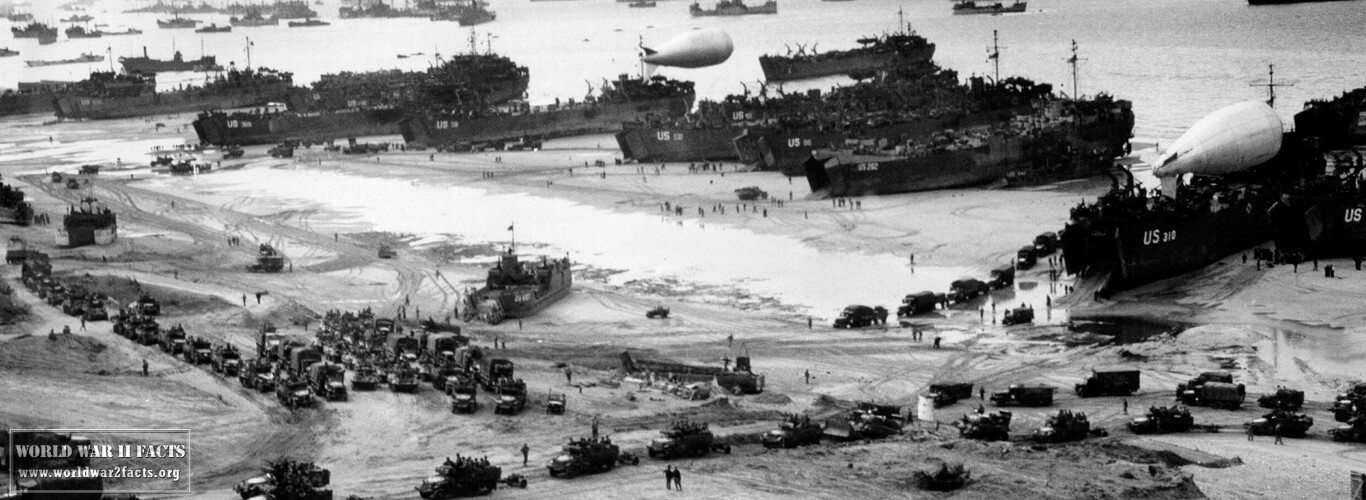Winston Churchill Quotes

Winston Churchill, or more formally known as, Sir Winston Leonard Spencer-Churchill, KG, OM, CH, TD, DL, FRS, Hon. RA was born on November 30th, 1874 and passed away on January 24th, 1965. Churchill served in numerous military and political levels of leadership for the United Kingdom; however, he is best known for his leadership as the country’s Prime Minister during World War 2 (1940-1945). During his time in service of the Queen, Churchill was also famous for his numerous quotes that remain interesting in the modern day.
Sir Winston Churchill was also a highly noted statesman, orator, historian, writer, and artist. He served a second term as Prime Minister during the Cold War from 1951-1955 and is the only U.K. P.M. to win the Nobel Prize in Literature and was the first to be made an Honorary Citizen of the United States. The following includes a number of the famous Winston Churchill quotes (once we get past some of Winston Churchill facts worthy of mention). If you have any favorites not listed, please leave them in the comments section of the article.
Winston Churchill Facts
Contents
- Winston Churchill Facts
- Winston Churchill Military Service
- Winston Churchill Quotes
- Sir Winston Churchill Quotes from the 1930’s
- Winston Churchill “We Shall Fight on the Beaches…” Speech
- Winston Churchill Finest Hour Speech
- Winston Churchill Quotes from World War 2 (1939-1945)
- Sir Winston Churchill Quotes and Paintings
- Winston Churchill Iron Curtain Speech
- Sir Winston Churchill References
Born: November 30, 1874, Blenheim Palace
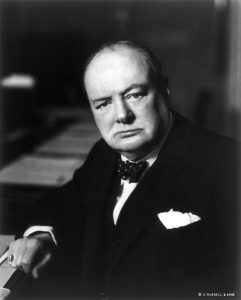
Date 1941
Died: January 24, 1965, Hyde Park Gate
Education: Royal Military Academy Sandhurst (1894), Harrow School, St. George’s School, Ascot
Artwork: Ightham Moat, Lullenden Manor, The Pont du Gard, and more.
Siblings: John Strange Spencer-Churchill
Winston Churchill Military Service
Allegiance: British Empire
Service/branch: British Army
Years of service: 1895–1900, 1902–24
Rank: Lieutenant-Colonel
Battles/wars:
Anglo-Afghan War
· Siege of Malakand
Mahdist War
· Battle of Omdurman
Second Boer War
· Siege of Ladysmith
First World War
· Western Front
Winston Churchill Awards
Galó de l’Orde del Mèrit (UK).png Order of Merit
Companion of Honour
India Medal
Queen’s Sudan Medal
Queen’s South Africa Medal 1899-1902
1914–15 Star
British War Medal
Victory Medal
Territorial Decoration
Winston Churchill Quotes
Sir Winston Churchill Quotes from the 1930’s
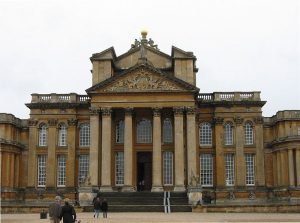
I remember, when I was a child, being taken to the celebrated Barnum’s circus, which contained an exhibition of freaks and monstrosities. But the exhibit on the programme which I most desired to see was the one described as “The Boneless Wonder.” My parents judged that that spectacle would be too revolting and demoralising for my youthful eyes, and I have waited 50 years to see the boneless wonder sitting on the Treasury Bench.
Reference: A jibe at Prime Minister ( and First Lord of the Treasury ) Ramsay MacDonald during a speech in the House of Commons, January 28, 1931 “Trade Disputes and Trade Unions (Amendment) Bill“.
India is a geographical term. It is no more a united nation than the equator.
Reference: Speech at Royal Albert Hall, London (18 March 1931)
It is alarming and also nauseating to see Mr. Gandhi, a seditious Middle Temple lawyer of the type well-known in the East, now posing as a fakir, striding half naked up the steps of the Viceregal palace to parley on equal terms with the representative of the King-Emperor.
Reference: Comment on Gandhi’s meeting with the Viceroy of India, addressing the Council of the West Essex Unionist Association (23 February 1931); as quoted in “Mr Churchill on India” in The Times (24 February 1931)
We shall escape the absurdity of growing a whole chicken in order to eat the breast or wing, by growing these parts separately under a suitable medium.
Reference: “Fifty Years Hence”, The Strand Magazine (December 1931)
We are stripped bare by the curse of plenty.
Reference: Lecture at Cleveland, Ohio (February 3, 1932), reported in Robert Rhodes James, ed., Winston S. Churchill: His Complete Speeches, 1897–1963 (1974), vol. 5, p. 5130; referring to the theory that over-production caused the Depression.
Winston Churchill “We Shall Fight on the Beaches…” Speech
We know that he has, more than any other man, the gift of compressing the largest number of words into the into the smallest amount of thought.
Reference: A jibe directed at Ramsay MacDonald, during a speech in the House of Commons, March 23, 1933 “European Situation“.
One may dislike Hitler’s system and yet admire his patriotic achievement. If our country were defeated, I hope we should find a champion as indomitable to restore our courage and lead us back to our place among the nations.
Reference: “Hitler and His Choice”, The Strand Magazine (November 1935)
We cannot tell whether Hitler will be the man who will once again let loose upon the world another war in which civilisation will irretrievably succumb, or whether he will go down in history as the man who restored honour and peace of mind to the Great Germanic nation.
Reference: “Hitler and His Choice”, The Strand Magazine (November 1935)

Date 1895 (Pre-1914)
Mr. Gandhi has gone very high in my esteem since he stood up for the untouchables … I do not care whether you are more or less loyal to Great Britain … Tell Mr. Gandhi to use the powers that are offered and make the thing a success.
Reference: Letter to G.D. Birla (1935); published in Winston S. Churchill, Volume Five: The Coming of War 1922-1939 (1979) by Sir Martin Gilbert
The world looks with some awe upon a man who appears unconcernedly indifferent to home, money, comfort, rank, or even power and fame. The world feels not without a certain apprehension, that here is some one outside its jurisdiction; someone before whom its allurements may be spread in vain; some one strangely enfranchised, untamed, untrammelled by convention, moving independent of the ordinary currents of human action.
Reference: At an unveiling of a memorial to T. E. Lawrence at the Oxford High School for Boys (3 October 1936); as quoted in Lawrence of Arabia: The Authorized Biography of T.E. Lawrence (1989) by Jeremy M Wilson
Occasionally he stumbled over the truth, but hastily picked himself up and hurried on as if nothing had happened.
Reference: On Stanley Baldwin, as cited in Churchill by Himself (2008), Ed. Langworth, PublicAffairs, p. 322 ISBN 1586486381
Anyone can see what the position is. The Government simply cannot make up their mind, or they cannot get the Prime Minister to make up his mind. So they go on in strange paradox, decided only to be undecided, resolved to be irresolute, adamant for drift, solid for fluidity, all powerful to be impotent. So we go on preparing more months and years – precious, perhaps vital to the greatness of Britian – for the locusts to eat.
Reference: Speech in the House of Commons, November 12, 1936 “Debate on the Address“, criticizing the Government of Stanley Baldwin for its conciliatory stance toward Hitler.
The era of procrastination, of half-measures, of soothing and baffling expedients, of delays, is coming to its close. In its place we are entering a period of consequences.
Reference: Speech in the House of Commons, November 12, 1936 “Debate on the Address”
Winston Churchill Finest Hour Speech
Courage is rightly esteemed the first of human qualities, because, as has been said, ‘it is the quality which guarantees all others.’
Reference: In Great Contemporaries, “Alfonso XIII” (1937)
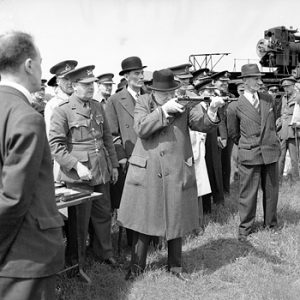
Photographer: Horton (Capt)War Office official photographer Collection Title: WAR OFFICE SECOND WORLD WAR OFFICIAL COLLECTION Collection No.: 4700-37 Description: WINSTON CHURCHILL AS PRIME MINISTER 1940-45 Winston Churchill takes aim with a Sten gun during a visit to the Royal Artillery experimental station at Shoeburyness in Essex, 13 June 1941.
Period: 5 Second World War Date: 13 June 1941. – Copyright: Crown copyright Access: Unrestricted Colour / B&W:Black and white Type:Official photograph
Note: the man in a pin-striped suit on the right of Churchill is Walter Thompson, Churchill’s bodyguard.
The essence and foundation of House of Commons debating is formal conversation. The set speech, the harangue addressed to constituents, or to the wider public out of doors, has never succeeded much in our small wisely-built chamber. To do any good you have got to get down to grips with the subject and in human touch with the audience.
Reference: In Great Contemporaries, “Clemenceau” (1937)
I do not agree that the dog in a manger has the final right to the manger even though he may have lain there for a very long time. I do not admit that right. I do not admit for instance, that a great wrong has been done to the Red Indians of America or the black people of Australia. I do not admit that a wrong has been done to these people by the fact that a stronger race, a higher-grade race, a more worldly wise race to put it that way, has come in and taken their place.
Reference: To the Peel Commission (1937) on a Jewish Homeland in Palestine
Dictators ride to and fro on tigers from which they dare not dismount. And the tigers are getting hungry.
Reference: “Armistice – or Peace?”, published in The Evening Standard (11 November 1937)
For five years I have talked to the House on these matters – not with very great success. I have watched this famous island descending incontinently, fecklessly, the stairway which leads to a dark gulf. It is a fine broad stairway at the beginning, but after a bit the carpet ends. A little farther on there are only flagstones, and a little farther on still these break beneath your feet. [ … ] Look back upon the last five years – since, that is to say, Germany began to rearm in earnest and openly to seek revenge … historians a thousand years hence will still be baffled by the mystery of our affairs. They will never understand how it was that a victorious nation, with everything in hand, suffered themselves to be brought low, and to cast away all that they had gained by measureless sacrifice and absolute victory – gone with the wind! Now the victors are the vanquished, and those who threw down their arms in the field and sued for an armistice are striding on to world mastery. That is the position – that is the terrible transformation that has taken place bit by bit.
Reference: Speech in the House of Commons (24 March 1938) “Foreign Affairs and Rearmament”, 12 days after the Anschluss (the Nazi annexation of Austria).
[O]ur loyal, brave people … should know the truth. … they should know that we have sustained a defeat without a war, … and that the terrible words have for the time being been pronounced against the Western democracies; ‘Thou art weighed in the balance and found wanting.’ And do not suppose that this is the end. This is only the beginning of the reckoning. This is only the first sip, the first foretaste of a bitter cup which will be proferred to us year by year unless by a supreme recovery of moral health and martial vigour, we arise again and take our stand for freedom as in the olden time.
Reference: Speech in the House of Commons (5 October 1938) “Policy of His Majesty’s Government”, a week after the announcement of the Munich Accords.
The stations of uncensored expression are closing down; the lights are going out; but there is still time for those to whom freedom and parliamentary government mean something, to consult together. Let me, then, speak in truth and earnestness while time remains.
Reference: Winston Churchill, in “The Defence of Freedom and Peace (The Lights are Going Out)”, radio broadcast to the United States and to London (16 October 1938)
People say we ought not to allow ourselves to be drawn into a theoretical antagonism between Nazidom and democracy; but the antagonism is here now. It is this very conflict of spiritual and moral ideas which gives the free countries a great part of their strength. You see these dictators on their pedestals, surrounded by the bayonets of their soldiers and the truncheons of their police. On all sides they are guarded by masses of armed men, cannons, aeroplanes, fortifications, and the like — they boast and vaunt themselves before the world, yet in their hearts there is unspoken fear. They are afraid of words and thoughts; words spoken abroad, thoughts stirring at home — all the more powerful because forbidden — terrify them. A little mouse of thought appears in the room, and even the mightiest potentates are thrown into panic. They make frantic efforts to bar our thoughts and words; they are afraid of the workings of the human mind. Cannons, airplanes, they can manufacture in large quantities; but how are they to quell the natural promptings of human nature, which after all these centuries of trial and progress has inherited a whole armoury of potent and indestructible knowledge?
Reference: Winston Churchill, in “The Defence of Freedom and Peace (The Lights are Going Out)”, radio broadcast to the United
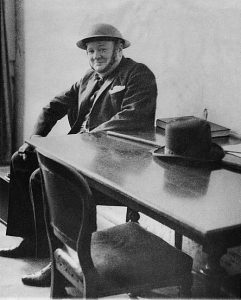
Date 1940
Source Library of Congress
States and to London (16 October 1938)
I have always said that if Great Britain were defeated in war I hoped we should find a Hitler to lead us back to our rightful position among the nations. I am sorry, however, that he has not been mellowed by the great success that has attended him. The whole world would rejoice to see the Hitler of peace and tolerance, and nothing would adorn his name in world history so much as acts of magnanimity and of mercy and of pity to the forlorn and friendless, to the weak and poor. … Let this great man search his own heart and conscience before he accuses anyone of being a warmonger.
Reference: “Mr. Churchill’s Reply” in The Times (7 November 1938)
Britain and France had to choose between war and dishonour. They chose dishonour. They will have war.
Reference: To Neville Chamberlain in the House of Commons, after the Munich accords (1938)
Winston Churchill Quotes from World War 2 (1939-1945)
I cannot forecast to you the action of Russia. It is a riddle wrapped in a mystery inside an enigma: but perhaps there is a key. That key is Russian national interest.
Reference: BBC broadcast (“The Russian Enigma”), London, October 1, 1939 (partial text).
First, Poland has been again overrun by two of the great powers which held her in bondage for 150 years but were unable to quench the spirit of the Polish nation. The heroic defense of Warsaw shows that the soul of Poland is indestructible, and that she will rise again like a rock which may for a spell be submerged by a tidal wave but which remains a rock.
Reference: BBC broadcast (“The Russian Enigma”), London, October 1, 1939 (partial text).[not in citation given]
I would say to the House, as I said to those who have joined this Government: ‘I have nothing to offer but blood, toil, tears, and sweat.’ We have before us an ordeal of the most grievous kind. We have before us many, many long months of struggle and of suffering. You ask, what is our policy? I will say: It is to wage war, by sea, land and air, with all our might and with all the strength that God can give us: to wage war against a monstrous tyranny, never surpassed in the dark, lamentable catalogue of human crime. That is our policy. You ask, what is our aim? I can answer in one word: It is victory, victory at all costs, victory in spite of all terror, victory, however long and hard the road may be; for without victory, there is no survival.
Reference: Speech in the House of Commons, after taking office as Prime Minister (13 May 1940) This has often been misquoted in the form: “I have nothing to offer but blood, sweat and tears …”
Side by side … the British and French peoples have advanced to rescue … mankind from the foulest and most soul-destroying tyranny which has ever darkened and stained the pages of history. Behind them … gather a group of shattered States and bludgeoned races: the Czechs, the Poles, the Norwegians, the Danes, the Dutch, the Belgians — upon all of whom the long night of barbarism will descend, unbroken even by a star of hope, unless we conquer, as conquer we must; as conquer we shall.
Reference: Radio broadcast, Be Ye Men of Valour , May 19, 1940 (partial text of the speech)
Every morn brought forth a noble chance, and every chance brought forth a noble knight.
Reference Speech in the House of Commons, June 4, 1940; passage praising the airmen of the Royal Air Force and their efforts during the evacuation of Dunkirk. This is a close paraphrase of Tennyson:
When every morning brought a noble chance,
And every chance brought out a noble knight.
Alfred Tennyson, “Morte d’Arthur”, stanza 23 (1842), and the expanded “The Passing of Arthur”, stanza 36 in Idylls of the King (1856–1885)
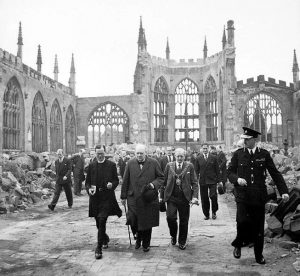
Date 28 September 1941
We shall not flag or fail. We shall go on to the end, we shall fight in France, we shall fight on the seas and oceans, we shall fight with growing confidence and growing strength in the air, we shall defend our Island, whatever the cost may be, we shall fight on the beaches, we shall fight on the landing grounds, we shall fight in the fields and in the streets, we shall fight in the hills; we shall never surrender, and even if, which I do not for a moment believe, this Island or a large part of it were subjugated and starving, then our Empire beyond the seas, armed and guarded by the British Fleet, would carry on the struggle, until, in God’s good time, the New World, with all its power and might, steps forth to the rescue and the liberation of the Old.
Reference: Speech in the House of Commons (4 June 1940); It has been noted that the most famous passage, beginning “We shall fight on the beaches …” and ending “… we shall never surrender,” consists entirely of words derived from Old English (Anglo-Saxon), except for the word “surrender” — which is derived from Old French.
Bearing ourselves humbly before God … we await undismayed the impending assault … be the ordeal sharp or long, or both, we shall seek no terms, we shall tolerate no parlay; we may show mercy – we shall ask for none.
Reference: BBC Broadcast, London, July 14, 1940 “War of the Unknown Warriors“.
Of this I am quite sure, that if we open a quarrel between the past and the present, we shall find that we have lost the future.
Reference: Speech in the House of Commons, June 18, 1940 “War Situation”.
Upon this battle depends the survival of Christian civilisation. Upon it depends our own British life and the long continuity of our institutions and our Empire. The whole fury and might of the enemy must very soon be turned on us now. Hitler knows that he will have to break us in this island or lose the war. If we can stand up to him, all Europe may be free and the life of the world may move forward into broad, sunlit uplands. But if we fail, then the whole world, including the United States, including all that we have known and cared for, will sink into the abyss of a new Dark Age, made more sinister, and perhaps more protracted, by the lights of perverted science. Let us therefore brace ourselves to our duties, and so bear ourselves that, if the British Empire and its Commonwealth last for a thousand years, men will still say, ‘This was their finest hour.’
Reference: Speech in the House of Commons, June 18, 1940 “War Situation”.
The gratitude of every home in our Island, in our Empire, and indeed throughout the world, except in the abodes of the guilty, goes out to the British airmen who, undaunted by odds, unwearied in their constant challenge and mortal danger, are turning the tide of the World War by their prowess and by their devotion. Never in the field of human conflict was so much owed by so many to so few. All hearts go out to the fighter pilots, whose brilliant actions we see with our own eyes day after day; but we must never forget that all the time, night after night, month after month, our bomber squadrons travel far into Germany, find their targets in the darkness by the highest navigational skill, aim their attacks, often under the heaviest fire, often with serious loss, with deliberate careful discrimination, and inflict shattering blows upon the whole of the technical and war-making structure of the Nazi power.
Reference: Speech in the House of Commons, also known as “The Few”, made on 20 August 1940. However Churchill first made his comment, “Never in the field of human conflict was so much owed by so many to so few” to General Hastings Ismay as they got into their car to leave RAF Uxbridge on 16 August 1940 after monitoring the battle from the Operations Room. Churchill repeated the quote in a speech to Parliament four days later complimenting the pilots in the Royal Air Force during the Battle of Britain. The speech in the House of Commons is often incorrectly cited as the origin of the popular phrase “never was so much owed by so many to so few”
Sir Winston Churchill Quotes and Paintings
We are waiting for the long-promised invasion. So are the fishes.
Reference: Radio broadcast, London, Dieu Protège La France [God protect France], October 21, 1940
Goodnight then: sleep to gather strength for the morning. For the morning will come. Brightly will it shine on the brave and true, kindly upon all who suffer for the cause, glorious upon the tombs of heroes. Thus will shine the dawn. Vive la France! Long live also the forward march of the common people in all the lands towards their just and true inheritance, and towards the broader and fuller age.
Reference: Radio broadcast, London, Dieu Protège La France [God protect France], October 21, 1940
These cruel, wanton, indiscriminate bombings of London are, of course, a part of Hitler’s invasion plans. He hopes, by killing large numbers of civilians, and women and children, that he will terrorise and cow the people of this mighty imperial city … Little does he know the spirit of the British nation, or the tough fibre of the Londoners.
Reference: Radio broadcast during the London Blitz, September 11, 1940. Quoted by Martin Gilbert in Churchill: A Life, Macmillan (1992), p. 675 ISBN 0805023968
The hour has come; kill the Hun.
Reference: How Churchill said he would end his speech if Germany invaded Britain (John Colville’s diary entry for January 25, 1941). In The Churchill War Papers : 1941 (1993), ed. Gilbert, W.W. Norton, pp. 132-133 ISBN 0393019594
Here is the answer which I will give to President Roosevelt: Put your confidence in us. … We shall not fail or falter; we shall not weaken or tire. Neither the sudden shock of battle, nor the long-drawn trials of vigilance and exertion will wear us down. Give us the tools and we will finish the job.
Reference: BBC radio broadcast, February 9, 1941. In The Churchill War Papers : 1941 (1993), ed. Gilbert, W.W. Norton, pp. 199-200 ISBN 0393019594
I must point out … that the British nation is unique in this respect. They are the only people who like to be told how bad things are, who like to be told the worst, and like to be told that they are very likely to get much worse in the future and must prepare themselves for further reverses.
Reference: Speech in the House of Commons, June 10, 1941 “Defence of Crete”, in The Churchill War Papers : 1941 (1993), Churchill/Gilbert, Norton, p. 785 ISBN 0393019594.
If Hitler invaded Hell, I would make at least a favourable reference to the devil in the House of Commons.
Reference: To his personal secretary John Colville the evening before Operation Barbarossa, the German invasion of the Soviet Union. As quoted by Andrew Nagorski in The Greatest Battle (2007), Simon & Schuster, pp. 150-151 ISBN 0743281101
Hitler is a monster of wickedness, insatiable in his lust for blood and plunder. Not content with having all Europe under his heel, or else terrorised into various forms of abject submission, he must now carry his work of butchery and desolation among the vast multitudes of Russia and of Asia. The terrible military machine – which we and the rest of the civilised world so foolishly, so supinely, so insensately allowed the Nazi gangsters to build up year by year from almost nothing – cannot stand idle lest it rust or fall to pieces. … So now this bloodthirsty guttersnipe must launch his mechanized armies upon new fields of slaughter, pillage and devastation.
Reference: Radio broadcast on the German invasion of Russia, June 22, 1941. In The Churchill War Papers : 1941 (1993), W.W. Norton, pp. 835-836 ISBN 0393019594
We ask no favours of the enemy. We seek from them no compunction. On the contrary, if tonight the people of London were asked to cast their votes as to whether a convention should be entered into to stop the bombing of all cities, an overwhelming majority would cry, “No, we will mete out to the Germans the measure, and more than the measure, they have meted out to us.” The people of London with one voice would say to Hitler: “You have committed every crime under the sun. Where you have been the least resisted there you have been the most brutal. It was you who began the indiscriminate bombing. We remember Warsaw! In the first few days of the war. We remember Rotterdam. We have been newly reminded of your habits by the hideous massacre in Belgrade. We know too well the bestial assaults you’re making upon the Russian people, to whom our hearts go out in their valiant struggle! We will have no truce or parley with you, or the grisly gang who work your wicked will! You do your worst! – and we will do our best! Perhaps it may be our turn soon. Perhaps it may be our turn now.”
Reference: July 14, 1941, in a speech before the London County Council. The original can be found in Churchill’s The Unrelenting
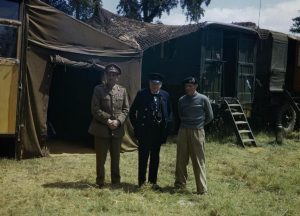
The Chief of the Imperial General Staff, Field Marshal Sir Alan Brooke
Mr Winston Churchill
Commander of the 21st Army Group, General Sir Bernard Montgomery
at Montgomery’s mobile headquarters in Normandy.
Date 12 June 1944
Struggle (English edition 187; American edition 182) or in the Complete Speeches VI:6448.
Never give in — never, never, never, never, in nothing great or small, large or petty, never give in except to convictions of honour and good sense. Never yield to force; never yield to the apparently overwhelming might of the enemy.
Reference: Speech given at Harrow School, Harrow, England, October 29, 1941. Quoted in Churchill by Himself (2008), ed. Langworth, PublicAffairs, 2008, p. 23 ISBN 1586486381
We have not journeyed all this way across the centuries, across the oceans, across the mountains, across the prairies, because we are made of sugar candy.
Reference: Speech before Joint Session of the Canadian Parliament, Ottawa (December 30, 1941), The Yale Book of Quotations, ed. Fred R. Shapiro, Yale University Press (2006), p. 153 ISBN 0300107986
It is not given to us to peer into the mysteries of the future. Still, I avow my hope and faith, sure and inviolate, that in the days to come the British and American peoples will for their own safety and for the good of all walk together side by side in majesty, in justice, and in peace.
Reference: Speech to a joint session of the United States Congress, Washington, D.C. (December 26, 1941); reported in Winston S. Churchill: His Complete Speeches, 1897–1963, ed. Robert Rhodes James (1974), vol. 6, p. 6541. The Congressional Record reports that this speech was followed by “Prolonged applause, the Members of the Senate and their guests rising”; Congressional Record, vol. 87, p. 10119.
When I warned them that Britain would fight on alone whatever they did, their generals told their Prime Minister and his divided Cabinet, “In three weeks England will have her neck wrung like a chicken.” Some chicken! Some neck!
Reference: Reference to the French government; speech before Joint Session of the Canadian Parliament, Ottawa (December 30, 1941)
The most dangerous moment of the War, and the one which caused me the greatest alarm, was when the Japanese Fleet was heading for Ceylon and the naval base there. The capture of Ceylon, the consequent control of the Indian Ocean, and the possibility at the same time of a German conquest of Egypt would have closed the ring and the future would have been black.
Winston Churchill Iron Curtain Speech
Reference: Quote about the (April 5, 1942) Easter Sunday Raid on Colombo, Ceylon (Sri Lanka). From a conversation at the British Embassy, Washington D.C., as described by Leonard Birchall, RCAF, in Battle for the Skies (2004), Michael Paterson, David & Charles, ISBN 0715318152
It was an experience of great interest to me to meet Premier Stalin … It is very fortunate for Russia in her agony to have this great rugged war chief at her head. He is a man of massive outstanding personality, suited to the sombre and stormy times in which his life has been cast; a man of inexhaustible courage and will-power and a man direct and even blunt in speech, which, having been brought up in the House of Commons, I do not mind at all, especially when I have something to say of my own. Above all, he is a man with that saving sense of humour which is of high importance to all men and all nations, but particularly to great men and great nations. Stalin also left upon me the impression of a deep, cool wisdom and a complete absence of illusions of any kind. I believe I made him feel that we were good and faithful comrades in this war – but that, after all, is a matter which deeds not words will prove.
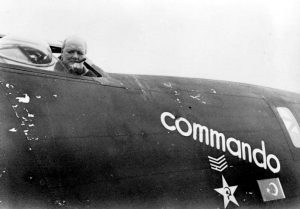
Date 1942
Reference: Speech in the House of Commons, September 8, 1942 “War Situation”.
Now this is not the end. It is not even the beginning of the end. But it is, perhaps, the end of the beginning.
Reference: speech at Lord Mayor’s Luncheon, Mansion House, London, November 10, 1942 : (partial text). Referring to the British victory over the German Afrika Korps at the Second Battle of El Alamein in Egypt
The problems of victory are more agreeable than those of defeat, but they are no less difficult.
Reference: Speech in the House of Commons, November 11, 1942 Debate on the address.
I have not become the King’s First Minister in order to preside over the liquidation of the British Empire.
Reference: Speech at Lord Mayor’s Luncheon, Mansion House, London, November 10, 1942
The Yale Book of Quotations, ed. Fred R. Shapiro, Yale University Press (2006), p. 153 ISBN 0300107986
Before Alamein we never had a victory. After Alamein, we never had a defeat.
Reference: The Second World War, Volume IV : The Hinge of Fate (1951) Chapter 33 (The Battle of Alamein), BBC News story on the 60th anniversary of Alamein
The maxim ‘Nothing avails but perfection’ may be spelt shorter: ‘Paralysis.’
Reference: Minute [brief note] to General Ismay, December 6, 1942 , on proposed improvements to landing-craft, In The Second World War, Volume IV: The Hinge of Fate (1951), Appendix C
I am sure it would be sensible to restrict as much as possible the work of these gentlemen, who are capable of doing an immense amount of harm with what may very easily degenerate into charlatanry. The tightest hand should be kept over them, and they should not be allowed to quarter themselves in large numbers among Fighting Services at the public expense.
Reference: On psychiatrists, in a letter to John Anderson, Lord President of the Council (December 19, 1942), In The Second World War, Volume IV: The Hinge of Fate (1951), Appendix C
There is no finer investment for any community than putting milk into babies.
Reference: Radio broadcast (March 21, 1943), cited in Churchill by Himself (2008), ed. Langworth, PublicAffairs, p. 21 ISBN 1586486381
By its sudden collapse, … the proud German army has once again proved the truth of the saying, ‘The Hun is always either at your
![English: Yalta summit in February 1945 with (from left to right) Winston Churchill, Franklin Roosevelt and Joseph Stalin. Also present are USSR Foreign Minister Vyacheslav Molotov (far left); Field Marshal Alan Brooke, Admiral of the Fleet Sir Andrew Cunningham, RN, Marshal of the RAF Sir Charles Portal, RAF, (standing behind Churchill); George Marshall, Army Chief of Staff and Fleet Admiral William D. Leahy, USN, (standing behind Roosevelt). Date February 1945 Source [1] The source web page include the following caption: Photo #: USA C-543 (Color)](https://www.worldwar2facts.org/wp-content/uploads/2013/04/Yalta_summit_1945_with_Churchill_Roosevelt_Stalin-300x242.jpg)
Date February 1945
Source [1] The source web page include the following caption: Photo #: USA C-543 (Color)
Reference: Speech before a Joint Session of Congress (May 19, 1943), Washington, D. C., in Never Give In! : The best of Winston Churchill’s Speeches (2003), Hyperion, p. 352 ISBN 1401300561
The empires of the future are the empires of the mind.
Reference: Speech at Harvard University, September 6, 1943, in The Oxford Dictionary of Quotations (1999), Knowles & Partington, Oxford University Press, p. 215 ISBN 0198601735
I have nothing to add to the reply which has already been sent.
Reference: Response to Dundee Council after refusing to expand on his reasons for not accepting the Freedom of the City Memo (October 27, 1943)
I hate nobody except Hitler — and that is professional.
Reference: Churchill to John Colville during WWII, quoted by Colville in his book The Churchillians (1981) ISBN 0297779095
We shape our buildings, and afterwards our buildings shape us.
Reference: Speech to the House of Commons (October 28, 1943), on plans for the rebuilding of the Chamber (destroyed by an enemy bomb May 10, 1941), in Never Give In! : The best of Winston Churchill’s Speeches (2003), Hyperion, p. 358 ISBN 1401300561
The essence of good House of Commons speaking is the conversational style, the facility for quick, informal interruptions and interchanges. Harangues from a rostrum would be a bad substitute for the conversational style in which so much of our business is done. But the conversational style requires a fairly small space, and there should be on great occasions a sense of crowd and urgency. There should be a sense of the importance of much that is said and a sense that great matters are being decided, there and then, by the House. … It has a collective personality which enjoys the regard of the public, and which imposes itself upon the conduct not only of individual Members but of parties.
Reference: Speech in the House of Commons, October 28, 1943 “House of Commons Rebuilding”.
The House of Commons has lifted our affairs above the mechanical sphere into the human sphere. It thrives on criticism, it is perfectly impervious to newspaper abuse or taunts from any quarter, and it is capable of digesting almost anything or almost any body of gentlemen, whatever be the views with which they arrive. There is no situation to which it cannot address itself with vigour and ingenuity. It is the citadel of British liberty; it is the foundation of our laws; its traditions and its privileges are as lively today it broke the arbitrary power of the Crown and substituted that Constitutional Monarchy under which we have enjoyed so many blessings.
Reference: Speech in the House of Commons, October 28, 1943 “House of Commons Rebuilding”.
You might however consider whether you should not unfold as a background the great privilege of habeas corpus and trial by jury, which are the supreme protection invented by the English people for ordinary individuals against the state. The power of the Executive to cast a man in prison without formulating any charge known to the law, and particularly to deny him the judgment of his peers is in the highest degree odious and is the foundation of all totalitarian government, whether Nazi or Communist.
Reference: In a telegram (November 21, 1942) by Churchill from Cairo, Egypt to Home Secretary Herbert Morrison; cited in In the Highest Degree Odious (1992), Simpson, Clarendon Press, p. 391 ISBN 0198257759
The object of presenting medals, stars, and ribbons is to give pride and pleasure to those who have deserved them. At the same time a distinction is something which everybody does not possess. If all have it it is of less value … A medal glitters, but it also casts a shadow.
Reference: Speech in the House of Commons, March 22, 1944 “War Decorations”.

Source: IWMCollections IWM Photo No.: H 41849
I have left the obvious, essential fact to this point, namely, that it is the Russian Armies who have done the main work in tearing the guts out of the German army. In the air and on the oceans we could maintain our place, but there was no force in the world which could have been called into being, except after several more years, that would have been able to maul and break the German army unless it had been subjected to the terrible slaughter and manhandling that has fallen to it through the strength of the Russian Soviet Armies.
Reference: Speech in the House of Commons, August 2, 1944 “War Situation”.
A love of tradition has never weakened a nation, indeed it has strengthened nations in their hour of peril; but the new view must come, the world must roll forward … Let us have no fear of the future.
Reference: Speech in the House of Commons, November 29, 1944 “Debate on the Address”.
It seems to me that the moment has come when the question of bombing of German cities simply for the sake of increasing the terror, though under other pretexts, should be reviewed.
Reference: After the devastation of Dresden by aerial bombing, and the resulting fire storm (February 1945). Quoted in Where the Right Went Wrong (2004) by Patrick J Buchanan, p. 119 ISBN 0312341156
It is a mistake to look too far ahead. Only one link in the chain of destiny can be handled at a time.
Reference: Speech in the House of Commons, February 27, 1945 “Crimea Conference”; in The Second World War, Volume VI: Triumph and Tragedy (1954), Chapter XXIII – Yalta: Finale.
To achieve the extirpation of Nazi tyranny there are no lengths of violence to which we will not go.
Reference: Speech to Parliament, September 21, 1943. Quoted in Churchill, Hitler, and the Unnecessary War (2008) by Patrick J Buchanan, p. 396
The Russians will sweep through your country and your people will be liquidated. You are on the verge of annihiliation.
Reference: To Stanisław Mikołajczyk in Moscow, October 14, 1944. Quoted in Churchill, Hitler, and the Unnecessary War (2008) by Patrick J Buchanan, p. 380
Sir Winston Churchill References
“Churchill and the Great Republic“. Exhibit Explores Life and Times of Britain’s Storied Leader. (NPR), last accessed April 6th, 2013.
The Churchill Centre website, last accessed April 5th, 2013
Sir Winston Churchill Wikipedia article, last accessed April 6th, 2013.
